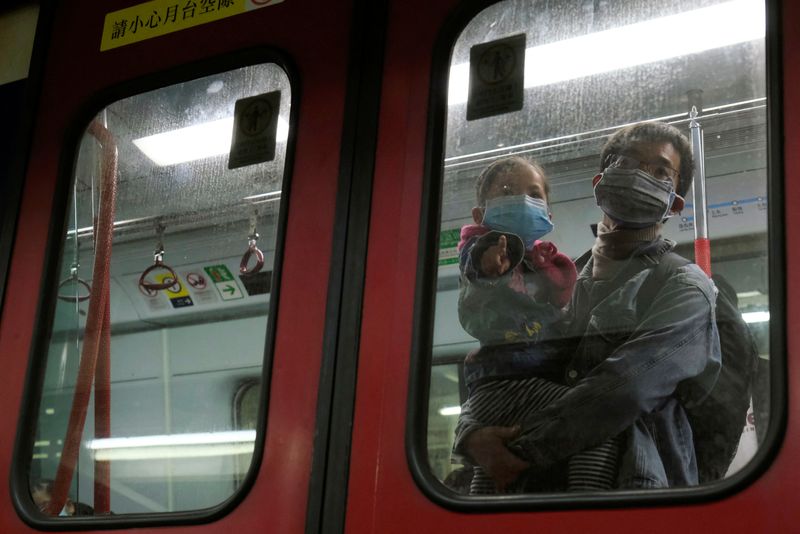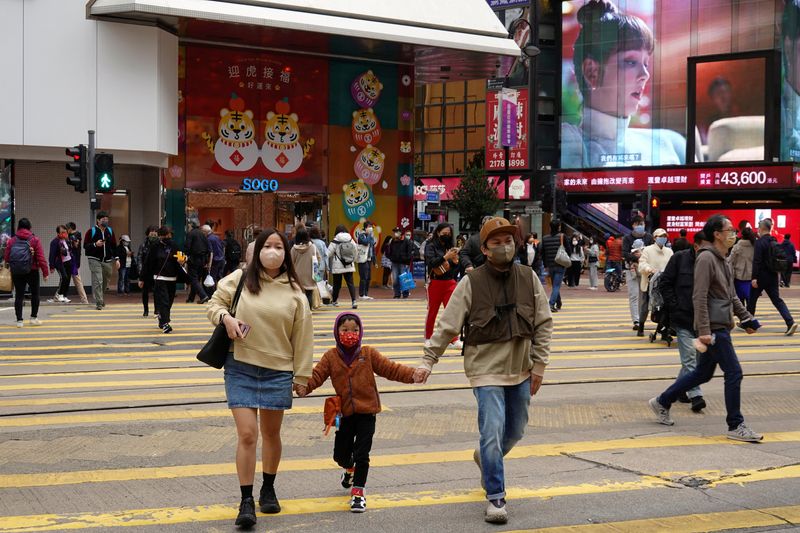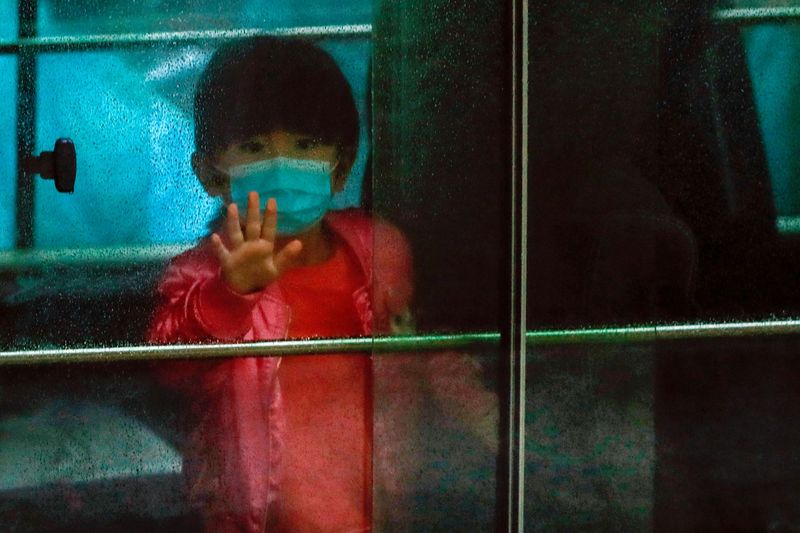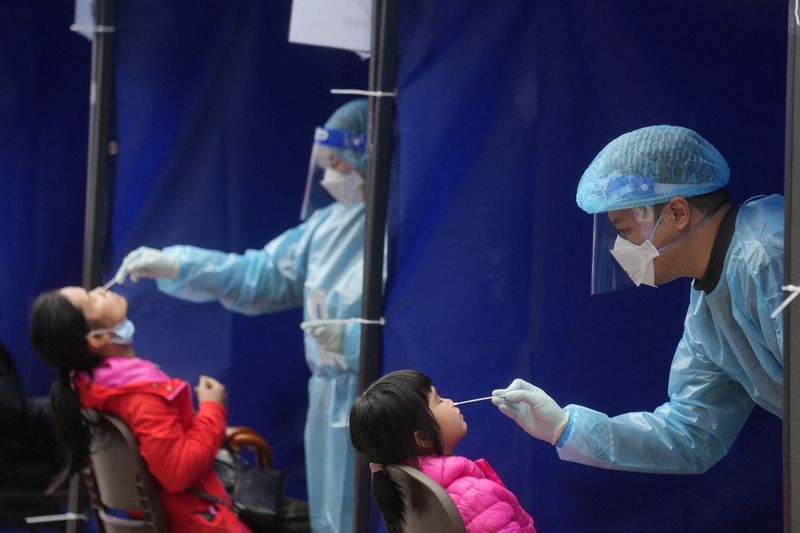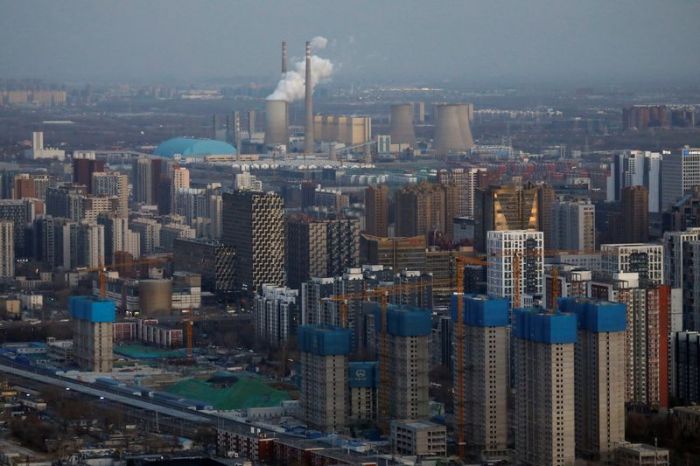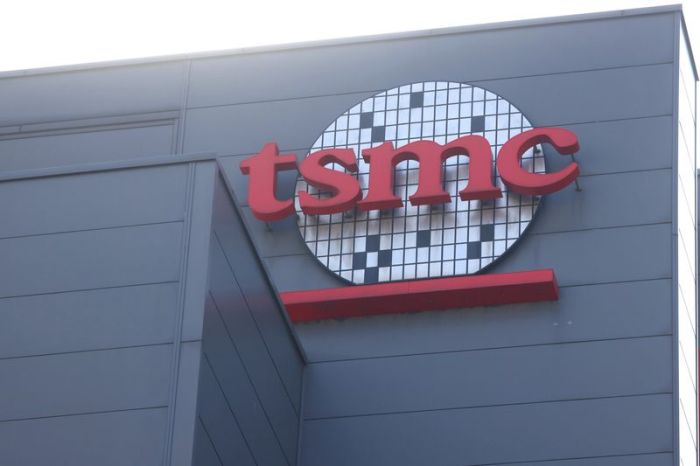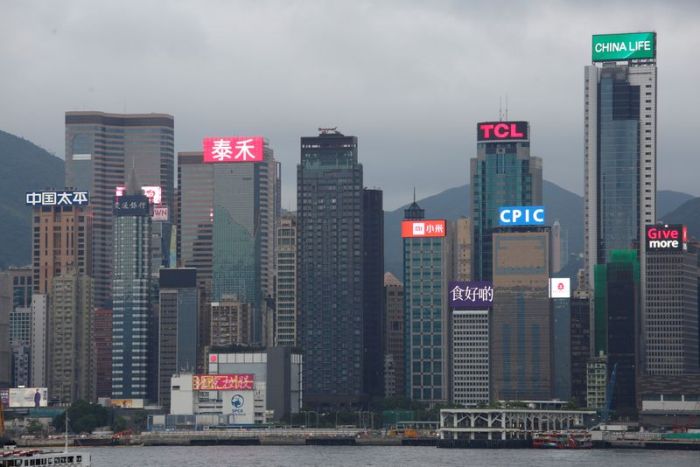HONG KONG (Reuters) -Guada, a mother of two young children and pregnant with twins, cries herself to sleep at night, worried that Hong Kong’s severe COVID-19 rules will separate her from her kids or force her to give birth alone.
Anyone who tests positive for COVID-19 in Hong Kong, including infants and children, are put into isolation facilities with no family contact allowed, as authorities enforce their “dynamic zero” COVID policy.
As coronavirus cases hit record daily highs, the government plans to roll out compulsory mass testing for the city’s 7.4 million people in March, exacerbating separation fears among many local and expatriate families.
“Imagine the stress I’m having right now … scared of having to give birth alone, scared of them taking my daughters away, taking my babies away, scared that if I’m positive, they are going to take me away,” said Guada, an Argentinian who has lived in Hong Kong for 3-1/2 years and has two girls aged 3 and 5. She declined to give her last name due to the sensitivity of the situation.
Parents’ worries have been heightened after authorities made an infected 11-month-old isolate by herself in hospital.
In the past two weeks, authorities have reported the deaths of several children who were infected with coronavirus, the youngest another 11-month-old.
Diplomats in the global financial hub say they have repeatedly raised concerns with the government over the issue of parents being separated from children in a city with some of the world’s most stringent coronavirus measures.
In response to media questions, Hong Kong’s Hospital Authority said it “understands the concern of parents and carers” but noted that child isolation facilities in public hospitals are seriously overloaded.
Where parents or carers were also COVID-positive, a hospital would try to ensure they could stay in the same ward as their infected child.
VIDEO CALLS
Authorities have said they are overwhelmed and cannot accommodate parents staying with infected infants as hospitals operate at maximum or over capacity with close to 10,000 new daily infections from nearly zero at the start of the year.
Parents can arrange video calls three times a day to stay in contact with their young ones, health authorities said.
“For me, it’s very inhumane. I’m very afraid. I have a daughter aged 14 months, she doesn’t speak, she doesn’t know how our phone works,” said a university lecturer who declined to be identified.
Medical clinic Central Health said isolating infants presented a “significant risk” of child fatalities “as parents may delay taking their children to hospital during critical periods when intervention could save lives”.
Some families, particularly in the expatriate community, have decided to leave ahead of the mandatory coronavirus testing in March.
While details of the testing remain vague, Hong Kong Chief Executive Carrie Lam has said people will not be able to isolate at home if they test positive and must go to government centres. Isolation and quarantine centres are currently at their maximum capacity with around 60,000 residents waiting at home to be admitted.
The government is building tens of thousands of new isolation units, with the help of the Chinese government, compounding worries families will be separated.
Hong Kong has recorded over 80,000 infections and more than 400 deaths since 2020, fewer than other major cities.
Spanish expatriate Veronica, who has lived in Hong Kong for nine years and also declined to give her last name, said she was distressed about the prospect of being separated from her three-month-old.
“I’m worried about leaving him alone, I’m not worried about the virus, I have the vaccine. I’m just worried about the situation,” she said.
(Reporting by Farah Master; Editing by Anne Marie Roantree, Karishma Singh and Emelia Sithole-Matarise)

